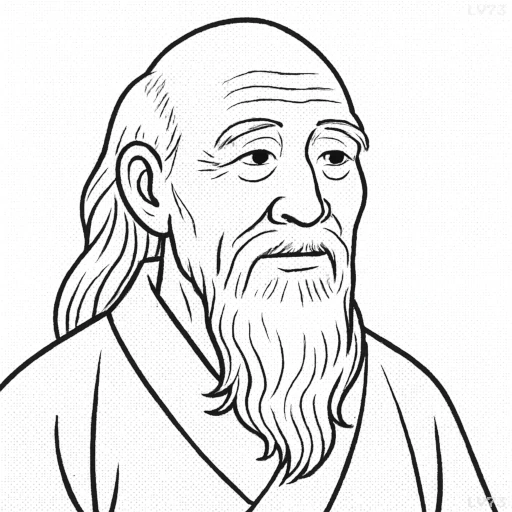“Nature is not human hearted.”

- 571 BC? – 470 BC?
- Born in China
- Philosopher
table of contents
Quote
“Nature is not human hearted.”
Explanation
This quote from Laozi reflects the Daoist perspective on the indifference of the natural world to human emotions, desires, and intentions. Laozi suggests that nature, or the Dao, operates according to its own laws, which are not influenced by human feelings such as compassion, justice, or mercy. Unlike humans, who often act based on personal emotions or societal constructs of right and wrong, nature follows a path of natural order and balance. It is neither benevolent nor malevolent—it simply is. By recognizing this, Laozi invites us to accept the inherent impartiality of the universe and align ourselves with the natural flow of life rather than expecting it to cater to human desires or emotions.
In a modern context, this quote speaks to the idea that life’s challenges, natural disasters, and even the course of human history often unfold without regard to human desires or moral considerations. The natural world does not operate according to human notions of fairness or justice; it simply operates according to the laws of nature. This can be both humbling and liberating, as it reminds us that control over life’s outcomes is limited and that acceptance of life’s unpredictability is key to peace.
The quote also carries a message about the limitations of human influence and the importance of humility. While humans may seek to impose their will upon the world, nature’s indifferent force teaches that we cannot control everything. Instead of trying to bend nature to our desires, Laozi advocates for harmony with the natural order—non-interference or wu wei, which allows us to live more peacefully in balance with the world around us, acknowledging that nature’s way is beyond human influence and understanding.
Would you like to share your impressions or related stories about this quote in the comments section?


